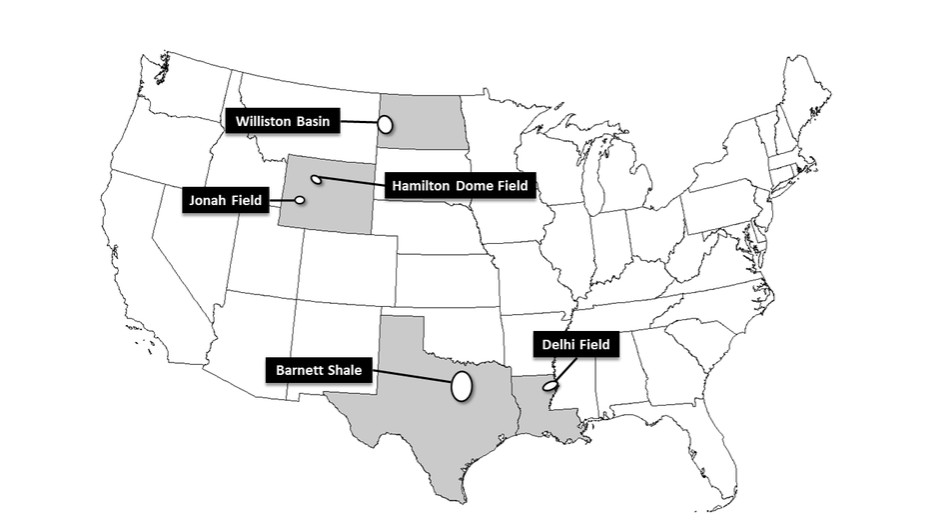The threat of climate change also may subject our operations and business to severe weather or other natural hazards, such as flooding, drought, wildfires, and extreme temperatures. Any such event could halt production or exploration activities, damage equipment, disrupt transportation, reduce consumer demand and significantly increase our costs.
Poor general economic, business, or industry conditions may have a material adverse effect on our results of operations, liquidity, and financial condition.
During the last few years, concerns over inflation, energy costs, volatile oil and natural gas prices, geopolitical issues, the availability and cost of credit, the United States mortgage market, uncertainties with regard to European sovereign debt, the slowdown in economic growth in large emerging and developing markets, such as China, regional or worldwide increases in tariffs or other trade restrictions, and other issues have contributed to increased economic uncertainty and diminished expectations for the global economy. Concerns about global economic conditions have had a significant adverse impact on domestic and international financial markets and commodity prices. If uncertain or poor economic, business, or industry conditions in the United States or abroad remain prolonged, demand for petroleum products could diminish or stagnate, and production costs could increase. These situations could impact the price at which we can sell our oil, natural gas, and NGLs, affect our vendors’, suppliers’, and customers’ ability to continue operations, and ultimately adversely impact our results of operations, liquidity, and financial condition.
Events outside of our control, including a pandemic or broad outbreak of an infectious disease, such as the global outbreak of a novel strain of the coronavirus (“COVID-19”), may materially adversely affect our business.
We face risks related to pandemics, outbreaks, or other public health events that are outside of our control and could significantly disrupt our operations and adversely affect our financial condition. In December 2019, COVID-19 was identified in Wuhan, China and rapidly spread around the world. This virus and its variants, and governmental actions to contain it, had material adverse economic impacts globally. These and other actions could, among other things, impact the ability of our employees and contractors to perform their duties, cause increased technology and security risk due to extended and company-wide telecommuting, and lead to disruptions in our permitting activities and critical business relationships. Additionally, governmental restrictions intended to contain COVID-19 or future pandemics have in the past, and may in the future, significantly impact economic activity and markets and dramatically reduce actual or anticipated demand for oil and natural gas, adversely impacting the prices we receive for our production. The severity and duration of any such events are uncertain and difficult to predict, as is the extent that such events may have on our business.
Our business could be negatively affected by security threats. A cyber-attack or similar incident could occur and result in information theft, data corruption, operational disruption, damage to our reputation, and/or financial loss.
The oil and natural gas industry has become increasingly dependent on digital technologies to conduct certain exploration, development, production, processing, and financial activities. We depend on digital technology to estimate quantities of oil and natural gas reserves, manage operations, process and record financial and operating data, analyze seismic and drilling information, and communicate with our employees and third-party operators. Our technologies, systems, networks, seismic data, reserves information, or other proprietary information, and those of our operators, vendors, suppliers, customers, and other business partners may become the target of cyber-attacks or information security breaches. Cyber-attacks or information security breaches could result in the unauthorized release, gathering, monitoring, misuse, loss or destruction of proprietary and other information, or could otherwise lead to the disruption of our business operations or other operational disruptions in our exploration or production operations. Cyber-attacks are becoming more sophisticated and certain cyber incidents, such as surveillance, may remain undetected for an extended period and could lead to disruptions in critical systems or the unauthorized release of confidential or otherwise protected information. These events could lead to financial losses from remedial actions, loss of business, disruption of operations, damage to our reputation, or potential liability. Also, computers control nearly all of the oil and natural gas distribution systems in the United States and abroad. Computers are necessary to transport our oil and natural gas production to market. A cyber-attack directed at oil and natural gas distribution systems could damage critical distribution and storage assets or the environment, delay or prevent delivery of production to markets and make it difficult or impossible to accurately account for production and settle transactions. Cyber incidents have increased, and the United States government has issued warnings indicating that energy assets may be specific targets of cybersecurity threats. Our

